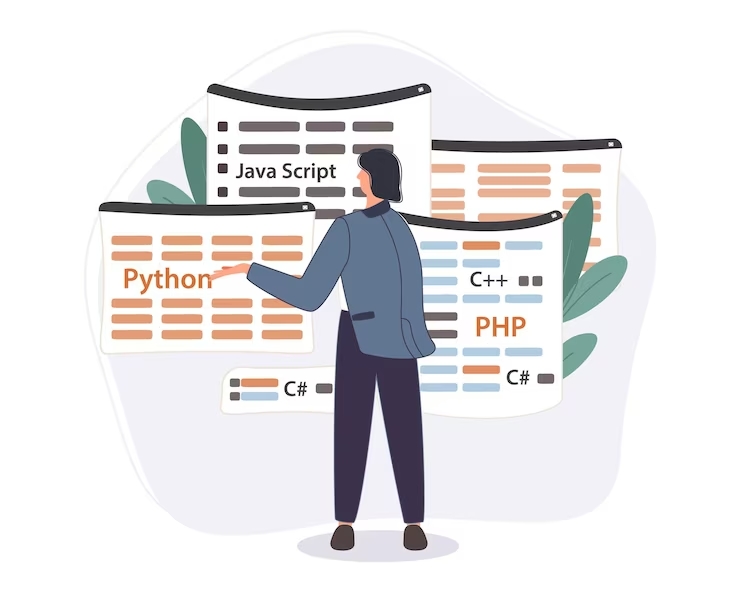How much Python knowledge is required for web development?

Python's importance in web development cannot be overstated. Its clean and readable syntax, coupled with an extensive ecosystem of libraries and frameworks, makes it a top choice for web developers. Python simplifies the development process, enabling developers to create robust and scalable web applications efficiently. Two standout frameworks, Django and Flask, streamline common web development tasks, from handling HTTP requests and managing databases to implementing user authentication. Python's versatility is another key asset; developers can easily transition between web development and other domains, such as data science and automation, thanks to Python's widespread use across various industries. With its accessibility, powerful tools, and adaptability, Python remains a fundamental language in the ever-evolving landscape of web development.
Python is a popular and versatile programming language for web development, and the level of Python proficiency required depends on your specific role and the complexity of the web applications you intend to build. Here's a breakdown of the Python skills you may need for web development:
- Basic Python:
- Web Frameworks:
- Database Interaction:
- Front-End Integration:
- API Integration:
- Security:
- Deployment and DevOps:
- Performance Optimization:
To get started with web development in Python, you should have a good grasp of the language fundamentals. This includes understanding variables, data types, control structures (if statements, loops), functions, and basic data structures (lists, dictionaries).
Python has powerful web frameworks like Django and Flask that simplify web development. For basic web development tasks, you should be comfortable with the framework of your choice and understand how to use it to create routes, handle HTTP requests and responses, manage templates, and work with databases.
Most web applications require interaction with databases. You should have knowledge of SQL for relational databases and Object-Relational Mapping (ORM) libraries like SQLAlchemy or Django's ORM for more advanced applications.
While Python is primarily used on the back end, web developers often work closely with front-end technologies. Familiarity with HTML, CSS, and JavaScript is essential for creating dynamic and responsive web interfaces.
Understanding how to consume and create APIs is crucial for modern web development. Python's libraries, such as requests, make it relatively straightforward to work with RESTful APIs and fetch data from external sources.
Security is a significant concern in web development. You should be aware of common web security vulnerabilities (e.g., SQL injection, cross-site scripting) and best practices for securing your web applications.
Knowledge of how to deploy Python web applications to production servers and manage server configurations is important. Familiarity with deployment tools, version control systems (e.g., Git), and containerization technologies (e.g., Docker) can be beneficial.
As your web applications grow, you may need to optimize performance. Proficiency in profiling and optimizing Python code and using caching mechanisms can be valuable skills.
The specific requirements for Python proficiency in web development may vary depending on the job role and the complexity of the projects you work on. Entry-level developers may focus on the basics, while senior developers may need a deeper understanding of advanced topics.
In summary, the level of Python required for web development can range from basic knowledge to advanced expertise, depending on your role and the complexity of the web applications you're building. Continuous learning and staying updated with web development trends and best practices are essential for success in this field.
FAQs
Do I need Python for web development?
Python is not an absolute requirement for web development, but it is a highly valuable and widely used language in the field. Many web developers choose Python because of its ease of learning, clean syntax, and rich ecosystem of web frameworks and libraries like Django, Flask, and Pyramid, which simplify the development process. Python's versatility allows developers to work on both the front-end and back-end of web applications. However, other languages like JavaScript (for front-end development) and Ruby, PHP, or Java (for back-end development) can also be used in web development. Your choice of programming language depends on your project requirements, goals, and personal preferences, but Python is certainly a strong contender due to its popularity and capabilities in web development.
Is Python enough for web Developer?
Python is a powerful and versatile language that can certainly serve as the primary language for a web developer, particularly on the back-end side of web development. With frameworks like Django and Flask, Python provides robust tools for building web applications efficiently and securely. However, for comprehensive web development, a full-stack developer may need to complement Python with front-end technologies like HTML, CSS, and JavaScript, depending on the project's requirements. Additionally, knowledge of databases, server configurations, and deployment tools is essential. So, while Python is a valuable asset, a web developer may benefit from a broader skill set to cover all aspects of web development effectively.
